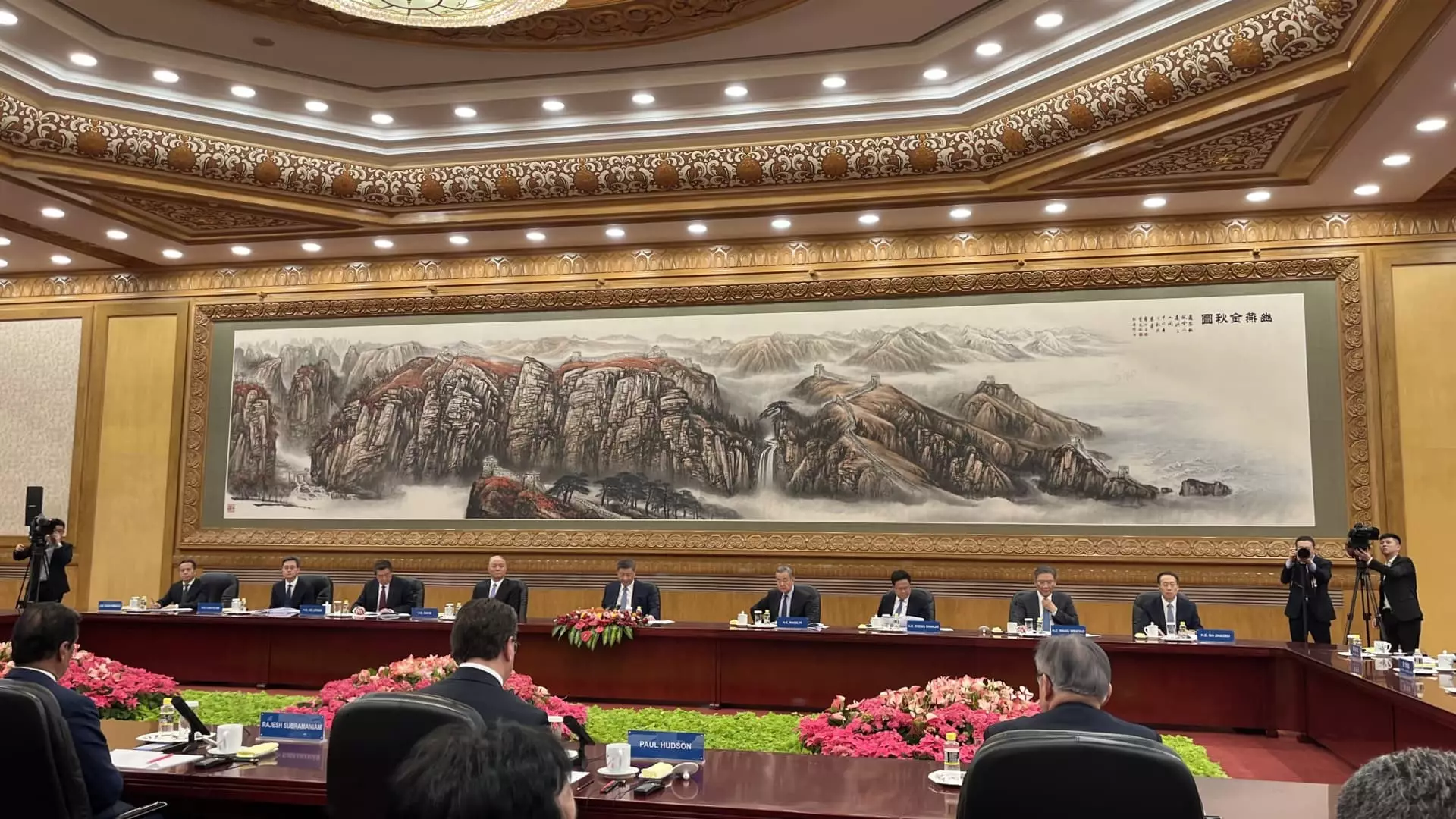In a bold move that reiterates China’s commitment to fostering international business relations, President Xi Jinping convened a significant meeting with leading global executives in Beijing. This delicate yet crucial dialogue comes at a time when trade tensions with the United States remain heightened, with tariffs and threats escalating the stakes for multinational companies. Xi framed the conversation not just as a plea for investment, but as a clarion call for businesses to actively participate in shaping a “global order” that benefits everyone involved.
The notion of multinational corporations taking on responsibilities beyond mere profit generation is profound. This gives us a glimpse into Xi’s strategy: by appealing to the moral obligations of these companies, he positions China as a partner in reshaping the global economic landscape. Xi’s assertion that “to invest in China is to invest in tomorrow” serves as an optimistic refrain, presenting China as a bastion of stability and safety for investors who may be rattled by global uncertainties.
China’s Open Invitation
During the meeting, which featured an impressive lineup of foreign executives from notable firms such as Bridgewater Associates and Blackstone Group, Xi reiterated China’s commitment to providing equitable opportunities for foreign businesses. The promise of fairness in government procurement summarized Xi’s call to international firms: if you wish to be a part of the intricate tapestry of China’s economy, the door is not only open; it is welcoming.
This overture is particularly strategic, given the crippling tariffs imposed by the U.S. during the Trump administration. These measures have strained relationships, driving many companies to reconsider their operational commitments in China. However, Xi’s commitment to ensuring a conducive environment for foreign investors signals that China is working diligently to not only weather the storm caused by external pressures but also to transform these challenges into opportunities for collaboration.
Navigating the Geopolitical Landscape
Trade relations today illustrate a multifaceted landscape where geopolitical dynamics continuously evolve. President Xi’s assertion that the U.S.-China trade tension should be resolved through dialogue rather than aggression is a notable contrast to the hostility seen in recent years. His remarks about the necessity of stability in global supply chains reflect a nuanced understanding of interdependencies in today’s economy; decoupling from trade networks is not a viable solution, he argues.
Xi’s call for resilience and cooperation cannot be understated when contextualized with the backdrop of increasing restrictions placed on Chinese firms by the U.S., including the recent addition of numerous Chinese tech companies to an export blacklist. In the face of such challenges, Xi is presenting a bastion of hope for investors who seek stability amid chaos.
The Human Element of Investment
A key aspect of Xi’s discourse was the personalized feedback given to various executives during the meeting. This approach underscores a critical factor often overlooked in corporate diplomacy—the human relationship. By acknowledging the individual histories and contributions of the attendees, Xi transformed a formal meeting into a platform for building deeper connections and alliances. It signals to the business community that the Chinese government prioritizes not just transactions, but relationships that can lead to sustainable growth and collaboration.
Additionally, the attendance of high-profile figures, albeit with notable absences, illustrates the mixed sentiment towards engagement with China. Despite perceived apprehensions, the willingness of executives from prominent firms like Apple to attend showcases an underlying acknowledgment of China’s pivotal role in the global market.
A Call for Global Synergy
Ultimately, Xi Jinping’s efforts epitomize a strategy aimed at fostering a sense of global synergy. By framing investment as a collaborative endeavor rather than a competitive threat, he seeks to encourage multinational firms to view China not just as a market, but as a critical partner in addressing shared global challenges.
This proactive stance invites a reevaluation of traditional investor perspectives. Instead of approaching investment merely as a transaction characterized by risk and reward, Xi’s narrative encourages thinking about investment in terms of participation in a larger, cooperative enterprise that has the potential to yield mutual benefits across borders.
As China positions itself as a stable haven within an unpredictable international landscape, it challenges executives to embrace a vision of investment that transcends mere economic gain, beckoning them to consider their role in shaping a flourishing tomorrow for all stakeholders involved.

